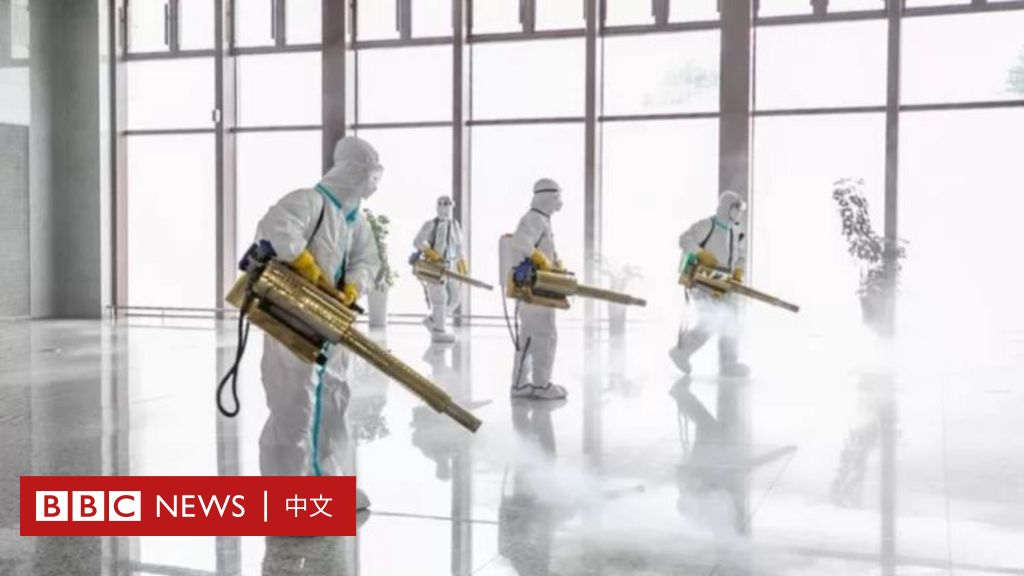image source,Getty Images
The number of new coronavirus infections in China continues to rise, with more than 10,000 confirmed cases, including asymptomatic infections on November 10.
The number of new coronavirus infections in China continues to rise. The number of infections exceeded 10,000 on Thursday (November 10), the maximum of a single day in months. On the same day, Xi Jinping, general secretary of the CCP Central Committee, chaired the first meeting of the Political Bureau Standing Committee of the CCP Central Committee after the 20th National Congress. During the meeting, he stressed once again that the implementation of the general policy of “dynamic compensation” of epidemic prevention is an unshakable position.
“China is a country with a large population, with a large number of vulnerable groups, unbalanced regional development, insufficient medical resources and the epidemic in some areas is still of some magnitude,” he said in his speech. At the same time, he said, it is necessary to adhere to scientific and precise prevention and control, to improve the effectiveness of epidemic prevention work, to accurately analyze epidemic risks, and to further optimize and adapt prevention and control measures. to ensure the prevention and control of epidemics in companies and on campuses and the rescue of blocked personnel.
On Friday, the Joint Prevention and Control Mechanism of the Chinese State Council announced the cancellation of the circuit breaker mechanism for inbound flights and adjusted the “7-day centralized quarantine + 3-day home health monitoring” to “5. centralized quarantine days + 3 days of domestic quarantine “for inbound passengers. Code management, it is not allowed to exit. In areas where no outbreak has occurred, nucleic acid testing should be performed on at-risk locations and key personnel in strict accordance with the scope determined by the ninth edition of the prevention and control plan and the scope of the Nucleic acid test does not need to be expanded.
Some analysts believe that in the context of the global unblocking, China’s adherence to the “zero” policy could harm the country’s economy and people’s livelihoods and harm more than the public health dividends brought by the policy.
image source,Getty Images
In recent months, discussions of public complaints or “secondary disasters” caused by the epidemic prevention policy have often sparked heated debates on the Chinese Internet.
Why does the official insist on stemming the spread of the epidemic?
In his speech on Thursday, Xi Jinping reiterated that “it is necessary to fully, accurately and comprehensively implement the decisions and provisions of the CCP Central Committee, firmly adhere to the supremacy of people and life, and firmly implement the general strategy of” foreign defense against import and domestic defense against rebound, and firmly no. “Move and implement the general policy of” dynamic compensation “.” During the meeting, he stressed that local governments and party committees at all levels must “fully understand the complexity, arduous and repetitive nature of the fight against the epidemic, strengthen their responsibilities and improve their skills. of combat “.
Chen Xi, an associate professor at the Yale School of Public Health, said in a BBC interview in Chinese that in a country with a huge immune gap like China, “getting it to zero” is just an unacceptable practice in the short term. to gain more time, to prepare more effective vaccines, antiviral therapy, medical system and psychological preparation of people.
He said that as early as a year and a half ago, when the epidemic was still in the middle stage, China should have prepared as soon as possible how to prepare for the gradual opening during the golden window of epidemic prevention. Chen Xi believes that China’s “clearing” policy will cause many people to lose their jobs for a long time, the economy will stall, brain drain will be lost and secondary medical disasters will frequently occur “and gradually outweigh the benefits for public health brought about by the compensation “.
Chen Xi believes that compared to the previous two Politburo outbreak response meetings this year, there are two points to pay attention to in this week’s official speech: one is to adhere to the general policy of “dynamic compensation”; the other is to emphasize the science of excelling and countering bureaucratic formalism, correcting local overweight, one size fits all. He believes: “The emphasis on scientific excellence shows that there are many public grievances and extensive management methods carry a lot of unnecessary costs. The increase in local levels actually reflects many common problems in social governance. It is also reflected in the ‘zeroing’. “.
Wang Zhihong, professor of pediatrics and health policy at Stanford University in the US, told the BBC’s Chinese analysis that China is currently striking a balance between “protecting lives” and “protecting livelihoods” to avoid political risks. .
But to protect lives, Professor Wang believes Beijing must introduce effective and affordable vaccines. Beijing tentatively agreed last week to make the BioNTech vaccine available to foreign nationals in China. But he believes China should also provide BioNTech or Modern vaccines to seniors over 65 or people with weakened immune systems, and this also to protect their livelihoods (livelihoods). He said that because the city closure or strict prevention and control regulations will bring great uncertainty in the production chain, whether customers want to place an order and whether it can be shipped at the same time is very important for China, the world factory. .
“secondary disaster”
In recent months, discussions of public complaints or “secondary disasters” caused by the epidemic prevention policy have often sparked heated debates on the Chinese Internet.
In April, the Shanghai blockade caused widespread hunger concern in China’s richest city. This week, there were reports of people refusing nucleic acid tests and resisting isolation in some areas of mainland China. For example, in Lanshan District in Linyi, Shandong, epidemic prevention staff were reported to beat residents asking when the lockdown would be lifted, causing a commotion among netizens. people were arrested by the police.
Not long ago the parents of a boy from Lanzhou, Gansu, accused the child of delaying medical treatment and he died due to the lockdown; at the same time a woman fell in Hohhot, Inner Mongolia, who was said to have an anxiety disorder until her death in a closed community, after which her daughter asked for help from the community, unsuccessful. In September, a bus accident on an epidemic prevention bus in Guizhou killed dozens of people and was considered a “secondary disaster” for epidemic prevention.
In economic terms, a cluster of infections was reported at the Foxconn plant in Zhengzhou, Henan, the largest iPhone foundry in the world. A large number of workers fled the factory for fear of being infected, and the video of the homecoming on foot became a global focus. Apple first acknowledged that shipments of the new phone could be affected. A Xiaowei worker who escaped from the factory and returned to his hometown after walking for two days and nights told the BBC in Chinese that he had escaped from the factory because not only was he afraid of being infected and having problems with his health, but also worried that his diagnosis record would be discriminated against by future employers. No more work: “I still have to support my family, right!” he told reporters.
Chen Xi believes long-term “compensation” is very expensive. “As the spread of the new variant of the coronavirus becomes stronger, it is estimated that the precise prevention and control mentioned in the meeting will become increasingly difficult to achieve. Soft landing of epidemic prevention and control before the outbreak of greater social conflicts. “
However, Mi Feng, a spokesman for the National Health and Health Commission of China, said this week that the ninth edition of the prevention and control plan and the “nine prohibitions” requirements must be strictly enforced and the level of prevention and control scientific and precise needs to be improved, “to avoid simplification and one-size-fits-all., decisively rectify overweight layer by layer”.


